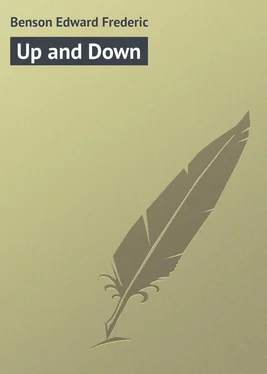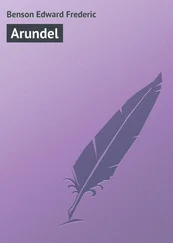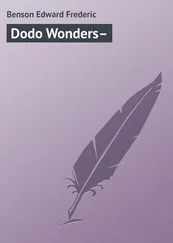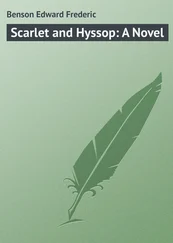Edward Benson - Up and Down
Здесь есть возможность читать онлайн «Edward Benson - Up and Down» — ознакомительный отрывок электронной книги совершенно бесплатно, а после прочтения отрывка купить полную версию. В некоторых случаях можно слушать аудио, скачать через торрент в формате fb2 и присутствует краткое содержание. Жанр: foreign_prose, на английском языке. Описание произведения, (предисловие) а так же отзывы посетителей доступны на портале библиотеки ЛибКат.
- Название:Up and Down
- Автор:
- Жанр:
- Год:неизвестен
- ISBN:нет данных
- Рейтинг книги:3 / 5. Голосов: 1
-
Избранное:Добавить в избранное
- Отзывы:
-
Ваша оценка:
- 60
- 1
- 2
- 3
- 4
- 5
Up and Down: краткое содержание, описание и аннотация
Предлагаем к чтению аннотацию, описание, краткое содержание или предисловие (зависит от того, что написал сам автор книги «Up and Down»). Если вы не нашли необходимую информацию о книге — напишите в комментариях, мы постараемся отыскать её.
Up and Down — читать онлайн ознакомительный отрывок
Ниже представлен текст книги, разбитый по страницам. Система сохранения места последней прочитанной страницы, позволяет с удобством читать онлайн бесплатно книгу «Up and Down», без необходимости каждый раз заново искать на чём Вы остановились. Поставьте закладку, и сможете в любой момент перейти на страницу, на которой закончили чтение.
Интервал:
Закладка:
You will find something of this consciousness in all that school of thought known as mysticism; it is, indeed, the basis of mysticism, whether that mysticism is pagan or Christian. In Greek thought you will find it, expressed guardedly and tentatively, and it undoubtedly lies at the base of some of their myths. It lurks in that myth of Narcissus, the youth who, beholding his own fair image in tranquil water, was drawn in by the spirits of the stream, and became a flower on the bank of the pool where he had lost himself, becoming merged in creation. So, too, in the story of Hyacinthus, whom Apollo loved. Him, as he was playing with the discus, the sun-god inadvertently slew, and from his blood came up the flowers that bear his name. And more especially, for here we get not the instance only but the statement of the idea itself, we find it in the myth of Pan, the god of all Nature, the spirit of all that is. He was not to be found in town or market-place, nor where men congregate, but it might happen that the lonely wayfarer, as he passed through untenanted valley or over empty hill-side, might hear the sound of his magical fluting of the tune that has no beginning and no ending, for it is as young as spring and as old as Time. He might even see him seated in some vine-wreathed cave, and though the sight of him meant, even as to Narcissus or to Hyacinthus, the death of the body, who shall doubt that he to whom that vision was vouchsafed died because he had utterly fulfilled himself as an individual, and his passing was the bursting of his heart with the greatness of the joy that illuminated him? He had beheld Nature – Nature itself with true eyes, and could no longer exist in separate individual consciousness; seeing the spirit of the All, he knew and was merged in his union with it.
Here is the pagan view of the All-embracing, All-containing God, and it is hardly necessary to point out how completely it is parallel to, even identical with, the revelations of Christian mysticism. The bridal of the soul with her Lord, as known to St. Theresa, the dissolution and bathing of the soul in love, its forsaking of itself and going wholly from itself, which is the spirit of what Thomas à Kempis tells us of the true way, are all expressions of the same spiritual attainment. To them it came in the light of Christian revelation, but it was the same thing as the Greek was striving after in terms of Pan. And in every human soul is planted this seed of mystic knowledge, which grows fast or slow, according to the soil where it is set, and the cultivation it receives. To some the knowledge of it comes only in fitful faraway flashes; others live always in its light. And the consciousness of it may come in a hundred manners: to the worshipper when he receives the mystery of his faith at the altar, to the lover when he beholds his beloved, to the artist when the lift of cloud or the "clear shining after rain" suddenly smites him personally and intimately, so that for the moment he is no longer an observer but is part of what he sees.
But to none of us does the complete realization come until the time when our individuality, as known to us here and now, breaks like the folded flower from the sheath of the body. Often we seem nearly to get there; we feel that if only we could stay in a state of mind that is purely receptive and quiescent, the sense of it would come to us with complete comprehension. But as we get near it, some thought, like a buzzing fly, stirs in our brain, and with a jerk we are brought back to normal consciousness, with the feeling that some noise has brought us back from a dream that was infinitely more vivid and truer than the world we awake to.
So it happened to me now. I saw and heard the hissing of the wash of the steamer break on the shore, observing it and thinking about it. I saw, too, that Francis had got up and was walking along towards me, ankle-deep in the shallow water. He groped among the pebbles with his hand, and picked something up. Then he came and lay down alongside, and before he spoke I think I knew the gist of what he was going to say.
He held out to me what he had picked up. It was one of those fragments of green mottled marble, such as we often find here, washed up from the ruined pavements of the palace.
"What is it?" he said. "What is it really? God somehow, you know."
"Or you or me?" I suggested.
"Yes, of course. Either, both. But there is something, Someone, call it the Absolute or the First Cause or God, which is quite everywhere. It can't be local. That's the only explanation of All-there-is which will hold water, and it holds water and everything else. But you don't get at it by discussion and arguments, or even by thought. You've got to open the windows and doors; let the air in. Perhaps you've got to knock down and blow up the very house of your identity, and sit on the ruins and wait. But it's the idea of that which makes me so busy in my lazy life."
The ripple of the steamer's wash died away again.
"Funny that you should have said that just now," I remarked.
"Why? Just because you had been thinking about it? I don't see that. If the wind blew here, it would be odder that it didn't blow when I was sitting over there."
"But did you know I had been thinking about it?"
"Well, it seemed likely. Let's have another swim before we dress. There's trouble coming in the sky. It's the last of the serene days for the present."
"But there was a high barometer this morning."
"There won't be when we get up to the Villa again," he said. "The sun has got the central-heating touch to-day. It's been stuffy heat for the last hour, not the heat of the fire. And look at the sky."
Certainly a curious change had taken place all over the firmament. It was as if some celestial painter had put body-colour into what had been a wash of pure blue; there was a certain white opacity mingled with the previous clarity of it. The sun itself, too, was a little veiled, and its heat, as Francis had said, seemed more like the radiation from hot-water pipes than the genial glow of an open fire. Round it at a distance of three or four of its diameters ran a pale complete halo, as of mist. Yet what mist could live in such a burning and be unconsumed?
"'Sometimes too hot the eye of heaven shines,
And often is his gold complexion dimmed,'"
quoted Francis. "But here we have the two things occurring simultaneously, which Shakespeare did not mean. But what, after all, didn't Shakespeare mean?"
We swam out round the fat German's promontory, floated, drifting with the eastward setting current, came lazily in again, and even more lazily walked up through the narrow cobbled path to where the rickety little victoria was waiting for us on the road. The tourist boat had arrived, and clouds of dust hung in the air, where their vehicles had passed, undispersed by any breeze. The intolerable oppression of the air was increasing every moment; the horse felt himself unable to evolve even the semblance of a trot, and the driver, usually the smartest and most brisk of charioteers, sat huddled up on his box, without the energy to crack his whip or encourage his steed to a livelier pace. Usually he sits upright and sideways, with bits of local news for his passengers, and greetings for his friends on the road; to-day he had nothing beyond a grunt of salutation, and a shrug of the shoulders for the tip which he usually receives with a wave of his hat, and a white-toothed " Tante grazie! " The Piazza, usually a crowded cheerful sort of outdoor club at midday, was empty, but for a few exhausted individuals who sat in the strips of narrow shadow, and the post-office clerk just chucked our letters and papers at us. The approach of Scirocco, though as yet no wind stirred, made everyone cross and irritable, and set every nerve on edge, and from the kitchen, when we arrived at the Villa, we heard sounds of shrill altercation going on between Pasqualino and Seraphina, a thing portentously unusual with those amicable souls. Pasqualino banged down the macaroni on the table, and spilt the wine and frowned and shrugged till Francis told him abruptly to mend his manners or let Seraphina serve us; on which for a moment the sunny Italian child looked out from the clouds and begged pardon, and said it was not he but the cursed Scirocco. And then, following on the cloud in the sky that had spread so quickly over the heavens, came the second cloud.
Читать дальшеИнтервал:
Закладка:
Похожие книги на «Up and Down»
Представляем Вашему вниманию похожие книги на «Up and Down» списком для выбора. Мы отобрали схожую по названию и смыслу литературу в надежде предоставить читателям больше вариантов отыскать новые, интересные, ещё непрочитанные произведения.
Обсуждение, отзывы о книге «Up and Down» и просто собственные мнения читателей. Оставьте ваши комментарии, напишите, что Вы думаете о произведении, его смысле или главных героях. Укажите что конкретно понравилось, а что нет, и почему Вы так считаете.












